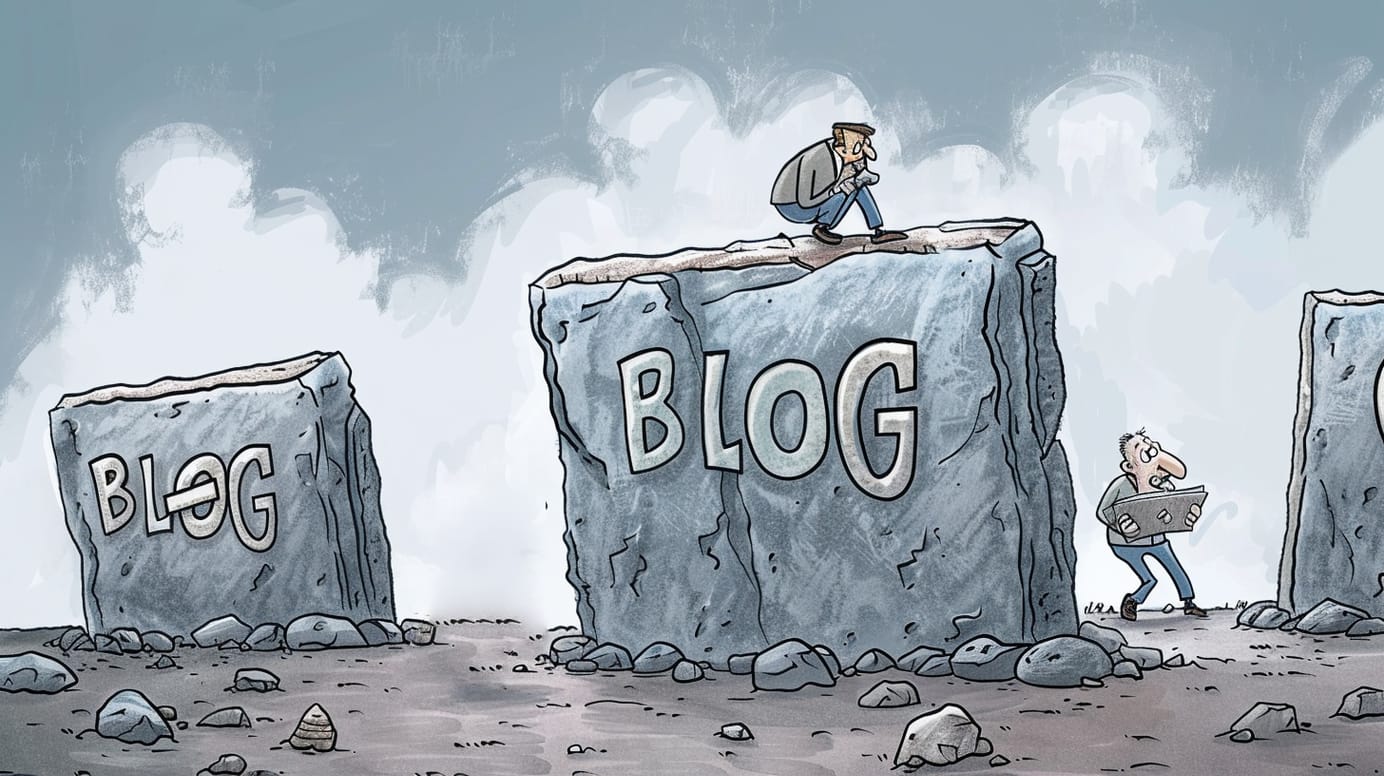
The lesson of a decade in digital media: trust your instincts
A lesson I learnt from my big blogging mistake…
Sometime around a decade ago, I was starting my journey from full time journalist (features editor on Estates Gazette) to the specialist in digital media transformation and development I’ve become over the last decade.
If there’s one lesson I’ve learned over that decade it’s this:
Trust your instincts. Act on them. But test and refine them.
A decade ago, I didn’t have that confidence. I let myself get talked into doing things I knew were a mistake by more senior voices that knew less about emergent media than I did – but were “experts” (whatever that means in a constantly shifting media landscape). One major example of that has, thankfully, faded from the internet.
My big blogging failure
For a brief while in 2005, I tried to write a blog for Estates Gazette – and it was godawful. The crappy platform – Community Server, which was never good at blogging – didn’t help, but the core problem was the central idea was wrong. I was pushed into doing a newsy blog, but I wasn’t working on the news team, who were unconvinced by the whole blogging thing anyway, so were unlikely to be feeding me material.
Ironically, I’d been writing successfully about real estate here on this blog for years at this point. But that editorial definition imposed on me meant that I actually ended up producing something that, despite the name and backing of a big media brand, attracted less traffic than my personal blog. And that was one of my earliest lessons on how fragile brand value can be in the digital transition – if the digital product isn’t top notch. And believe me, it wasn’t. I was briefly the world’s worst property blogger, baffling the people who had been reading me on the topic on my own blog.
The poor EG Blog starved to death, and its digital corpse was swept away by the junking of that platform a couple of years later.
What I should have done – what all my instincts screamed at me to do – was do intelligent aggregation. Find, filter and link to the most interesting stuff out there, that would bring new information and thoughts to the industry. Rather than reporting on the property industry – after all, EG already had a whole team of people doing that – I should have been bringing the most interesting writing about property-related issues from the wider internet to the attention of the industry.
Serve your readers in a different way, rather than doing the same thing using a different technology. Core difference.
Property’s role in London’s downfall
I was reminded of this by a piece by Cory Doctorow on Boing Boing this morning, where he explains why he’s moving back to the US:
The short version is, we want to live in a city whose priorities are around making a livable place to work, raise our family, and run our respective small businesses. But London is a city whose two priorities are turning itself into a playground for the most corrupt global elites who are turning neighbourhoods into soulless collections of empty, high-rise safe-deposit boxes in the sky; and continuing to encourage the feckless, reckless criminality of the finance industry (these two facts are not unrelated).
It would have been an interesting piece to point the property industry to because, while they might not have agreed with the thesis, at least it’s something outside their regular reading for them to consider.
A decade on, that’s still what blogging does well – pushing people towards interesting writing that algorithmic sorting and friend-mediated sharing never will.
Sign up for e-mail updates
Join the newsletter to receive the latest posts in your inbox.










